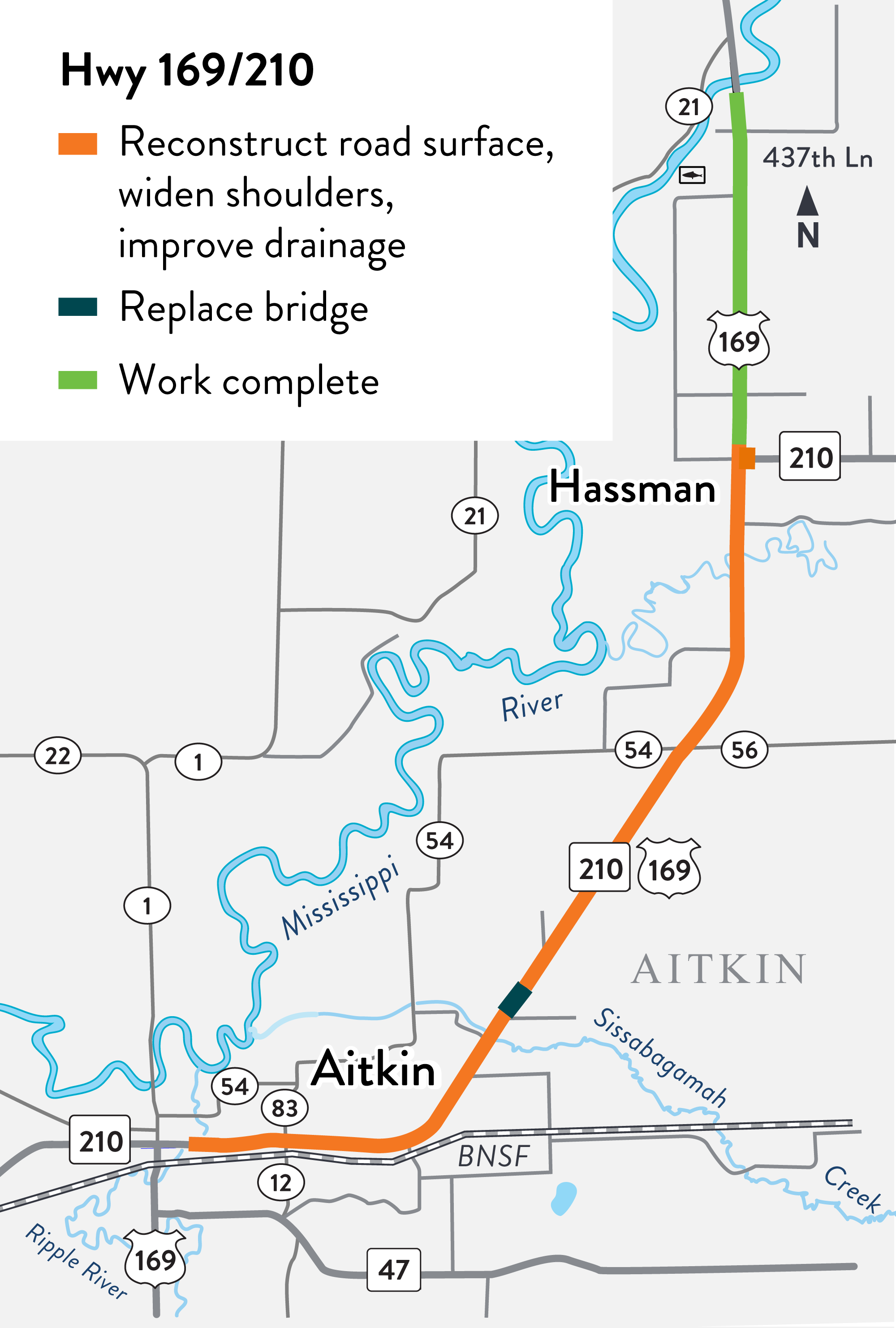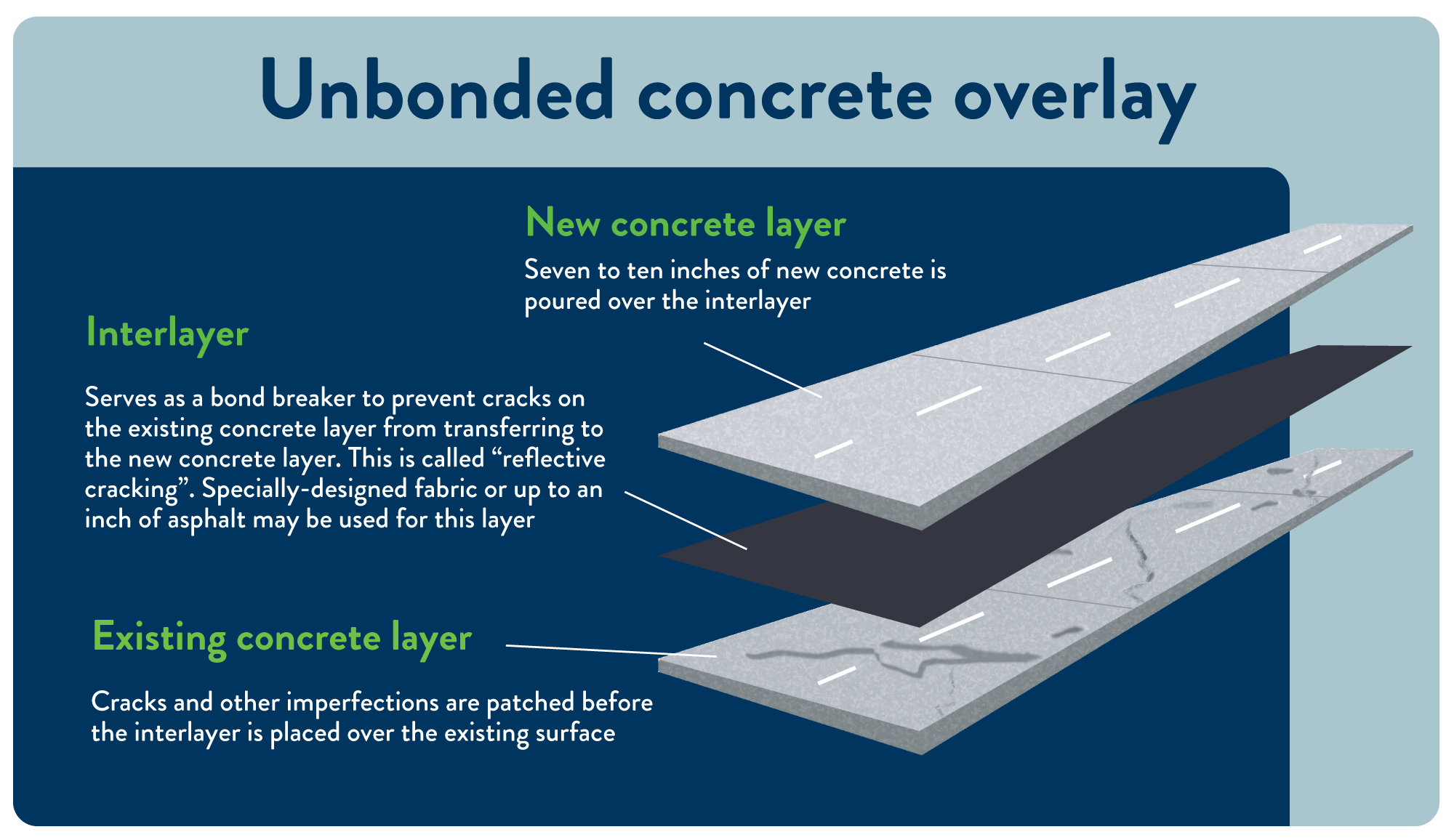COMPLETE
About this project

MnDOT reconstructed the road and widened shoulders from the Ripple River in Aitkin to the Mississippi River north of Hassman, Aitkin County.
Summary of work
- Reconstruct 11 miles of road surface with a stronger, concrete overlay material
- Widen the shoulders (eight-feet paved and two-feet gravel), lengthen turn lanes and improve road access
- Add center turn lane through the city of Aitkin to Co. Rd. 12/83 (400th Ave.)
- Repair or replace drainage infrastructure
- Replace bridge

